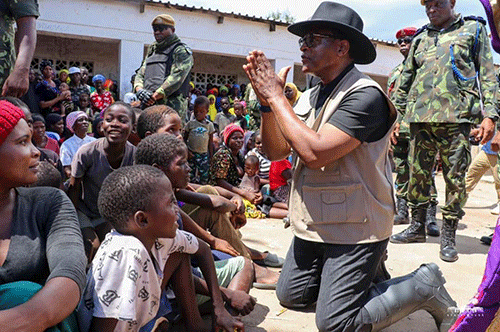Cabinet has approved a donation of N$1.86 million to the Malawi government as humanitarian assistance to victims of Tropical Cyclone Freddy, which ravaged the landlocked African country.
International relations minister Netumbo Nandi-Ndaitwah told New Era that Namibia is simply playing her role in assisting its neighbours.
“When your neighbour is in trouble, you have to care, and that’s why our government gave that token donation of N$1.8 million to the victims in Malawi,” she said.
Namibia assisting Malawi does not mean all the needs in the country are met, the minister added.
“This is not the first time Namibia is helping countries in difficult situations. When Mozambique suffered from climatic conditions, Namibia, through the government, made a donation. Namibia also did it to Zimbabwe when it was in a similar situation,” said Nandi-Ndaitwah.
Since 12 March 2023, heavy rains, strong winds and floods, attributed to the cyclone that has had a devastating toll on the people across 14 districts, hit Malawi, affecting nearly half of the country.
Cyclone Freddy developed over the Indian Ocean, causing landfall in landlocked Malawi. This is the second landfall by Cyclone Freddy in southern Africa.
“Malawi is in need of so many things but they appreciate it. They need tents, food and other necessities,” Nandi-Ndaitwah said.
The reports have come from 16 affected councils, including Balaka, Blantyre District, Chikwawa, Chiradzulu, Machinga, Mangochi, Mulanje, Mwanza, Neno, Blantyre City, Nsanje, Ntcheu, Phalombe, Thyolo, Zomba City and Zomba District.
Malawi was experiencing a severe cholera outbreak, and it is feared flood waters could worsen the situation and reduce access to safe water and sanitation.
As of 25 March 2023, the number of displaced people has risen from 563 771 to 564 239, with 577 camps set to accommodate the displaced.
The death toll remains at 511, with 1 724 registered injuries. The number of reported missing persons is still at 533.
Commissioner for disaster management Charles Kalemba was quoted as saying: “Following the declaration of a state of disaster by President Lazarus McCarthy Chakwera, foreign missions, governments, local and international organisations, companies and individuals of goodwill continue providing various support towards TCF response operations”.
The impact of Cyclone Freddy’s landfall on Malawi comes at the back of its previous landfall (in February) in Mozambique and Madagascar, where over 1 million people have been affected – and more than 160 000 people were internally displaced.
Malawian President Lazarus Chakwera said the magnitude of the damage to key infrastructure across all the affected districts is enormous and needs immediate attention.
Chakwera stated: “Our immediate task is to fix the infrastructure as soon as possible to expedite the restoration of social and economic activities. I have listened to their concerns, fears and expectations. I have made a firm commitment to them that they will receive all the necessary support up until they recover from the after-effects of Cyclone Freddy”.
He added that on a recent trip to assess cyclone-induced damage in Mulanje, Phalombe and Zomba, it dawned on him that the aftermath of Cyclone Freddy will demand a candid discussion on the country’s climate change management and adaptation strategies.
“What caught my attention is that unlike other areas where the storm has affected the land mass, in Zomba, the country’s second-largest water reservoir – Lake Chilwa – has transitioned from perennial droughts to too much water within days. This has put a strain on a whole blue economy that supports close to 1.5 million people,” he stated.
He said to have too much water destroy what is supposed to be a water body is probably the rarest irony anyone can think of.
“While we offer preliminary support in form of relief items and services to affected communities, we must start thinking of making climate-smart undertakings a way of everyone’s life,” he stated.


